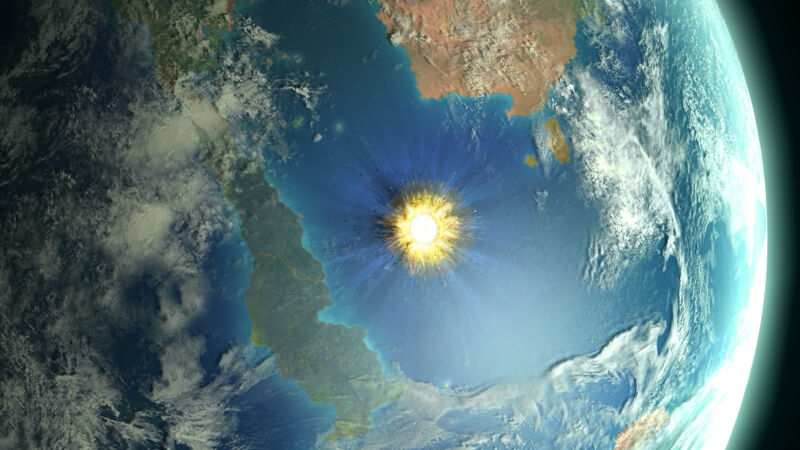- Регистрация
- 17 Февраль 2018
- Сообщения
- 30 443
- Лучшие ответы
- 0
- Баллы
- 2 093
Offline

Enlarge (credit: MARK GARLICK/SCIENCE PHOTO LIBRARY)
Classic whodunit mysteries work because just about every character ends up being a murder suspect. The demise of non-avian dinosaurs is a lot like that. The Chicxulub impact and its aftereffects created a huge range of potentially lethal suspects. Whodunit? A giant fireball and massive tsunamis? Wild swings in the climate? Global wildfires? A blackened sky that shut down photosynthesis? All of the above?
Modeling these impacts, combined with data on the pattern of extinctions, has led to various opinions on what proved decisive regarding the extermination of so many species. In the latest look at the end-Cretaceous extinction, a team of scientists largely based in Brussels has revisited deposits laid down in the aftermath of the impact and found that much of the debris came from fine dust. When that dust is plugged into climate models, global temperatures plunge by as much as 25° C, and photosynthesis shuts down for almost two years.
Dust to dust
There was a lot going on in the atmosphere in the years after the impact. Debris thrown up by the impact would have re-entered Earth's atmosphere, burning up into fine rocky and sulfur-rich particles in the process. The heat generated by this process would have set off massive wildfires, adding a lot of soot to the mix. And all of that was churned up with the debris from the impact that stayed within the atmosphere.
Read 10 remaining paragraphs | Comments
